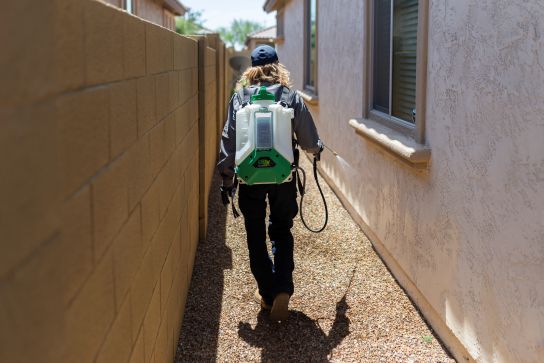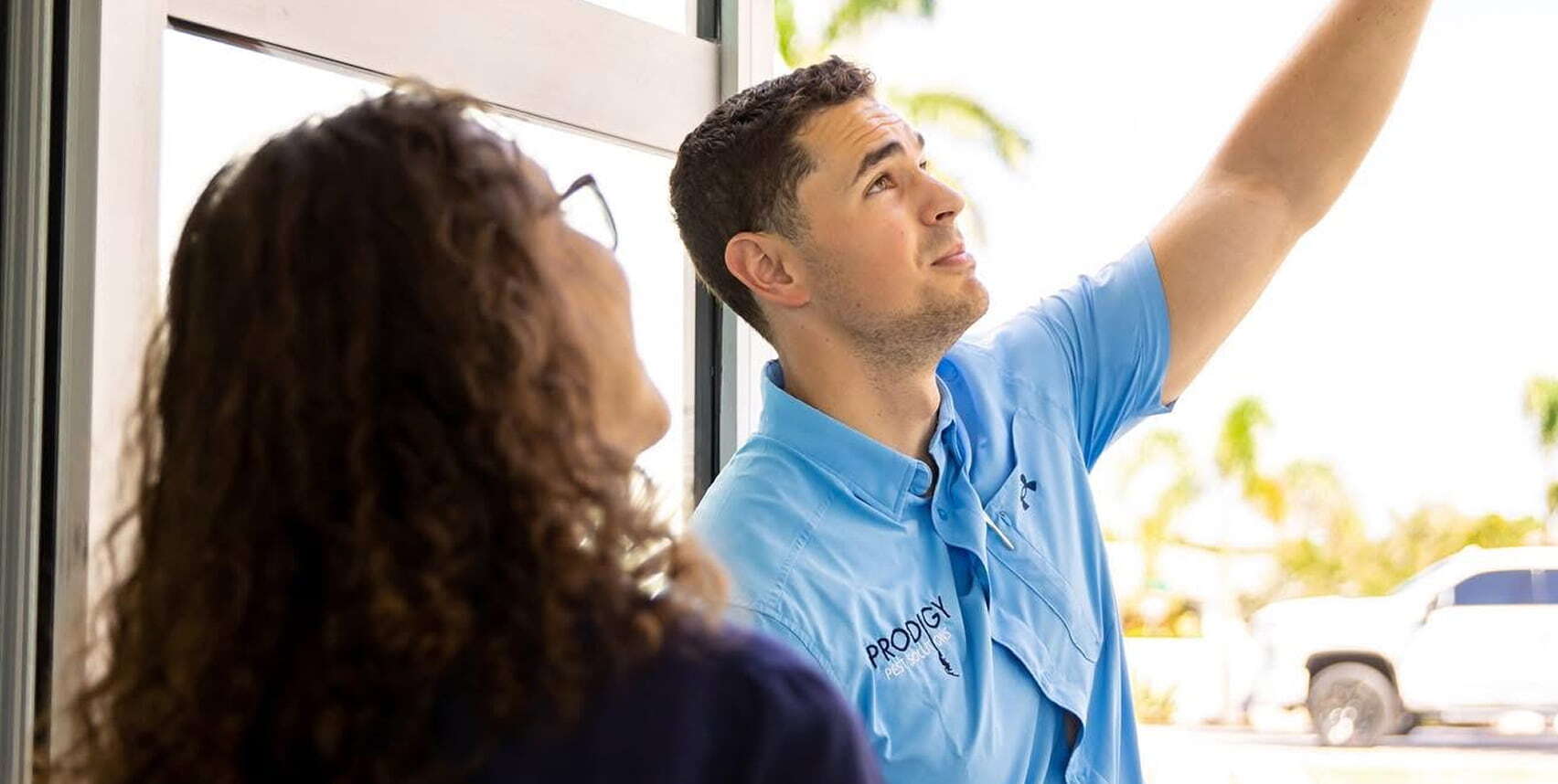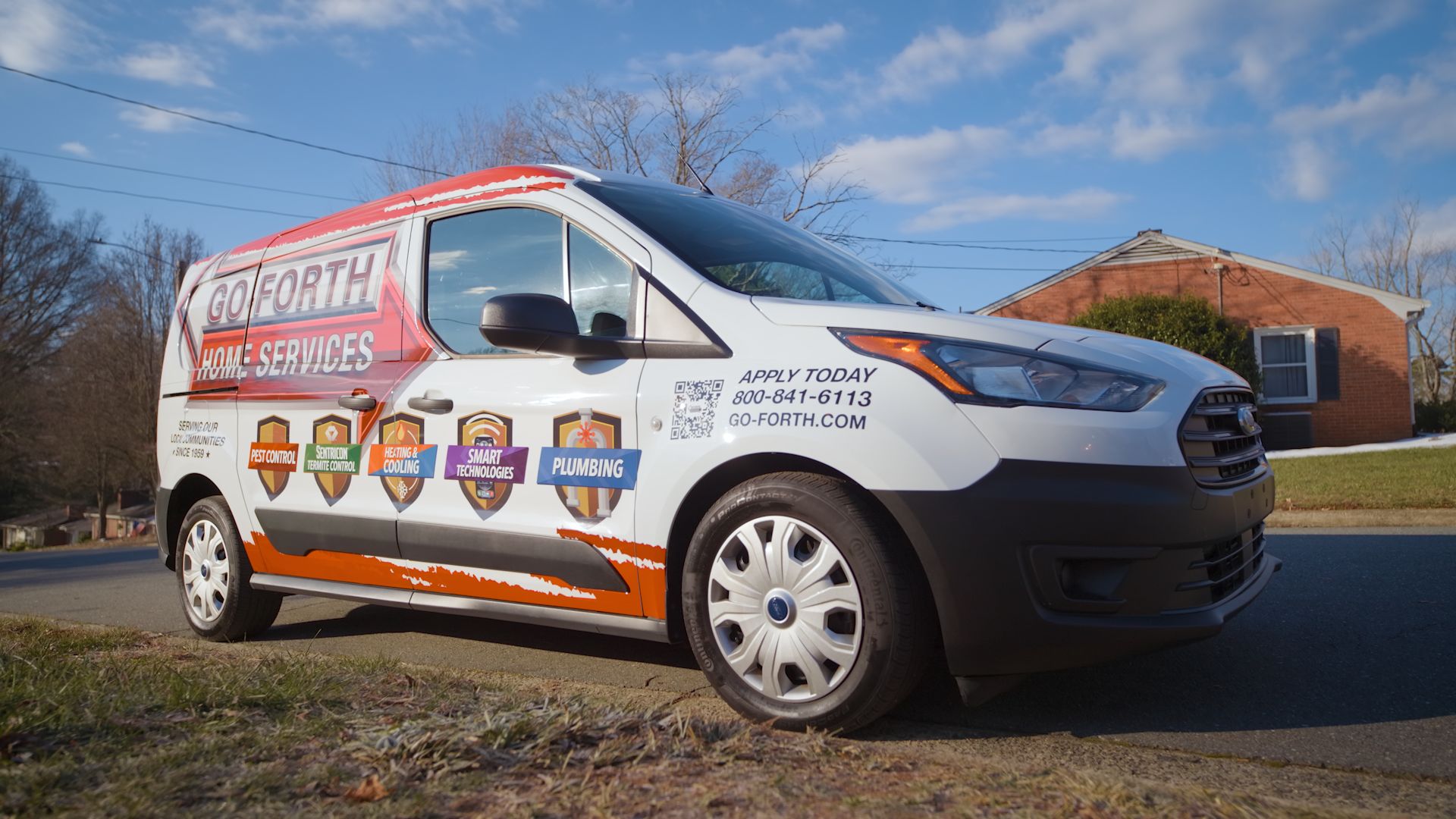South Carolina Pest Control License & Certification (Updated in 2025)

Getting a pest control license in South Carolina involves several steps, including choosing the correct license type, understanding the regulations, and completing exams administered by the Department of Pesticide Regulation (DPR) at Clemson University.
Whether you are a commercial pesticide applicator, a non-commercial applicator, or a private applicator, you need to understand South Carolina’s licensing process clearly.
This guide covers the different South Carolina pest control license types, eligibility criteria, exam requirements, licensing costs for each type of applicant, and information on South Carolina’s reciprocity agreements for pest control company field representatives.
You’ll also find information on required continuing education and state-specific regulations for doing pest control work.
By following this guide, you can navigate the process to get your South Carolina pest control license and start your pest management career or business successfully.
What Is a Pest Control License?
A pest control license is a certification issued by the state of South Carolina that allows individuals and businesses to legally and professionally apply pesticides. Clemson University oversees pest control licensing to ensure applicators and pest control operators follow strict safety standards and environmental regulations.
South Carolina has different types of licenses depending on the type of pesticide use, including Commercial, Non-Commercial, and Private Applicator licenses. Each license type requires specific training, exams, and ongoing continuing education to stay compliant.
Identifying the proper South Carolina pest control license is crucial for anyone pursuing certification in pest management.
Do You Need a Pest Control License in South Carolina?
In South Carolina, you must have a valid pest control license issued by the Department of Pesticide Regulation if you apply restricted-use pesticides, do pest control work commercially, or apply pesticides, insecticides, or other forms of weed control as part of your job.
Even individuals applying restricted-use pesticides on their agricultural land must have a Private Applicator License for agriculture. Operating without the proper pest control license can result in penalties, fines, or other legal consequences.
What Are the Licensing Requirements for Pest Control Contractors in South Carolina?
Pest control contractors in South Carolina must obtain the appropriate Commercial Pesticide Applicator License from the Department of Pesticide Regulation (DPR) at Clemson University before providing pest control services professionally.
To get licensed in South Carolina, pest control contractors must:
Complete DPR-approved certification programs or have adequate industry experience.
Pass the state-administered pesticide licensing exams, including the core exam and relevant category-specific tests, and score the minimum required.
Pay the exam fee associated with the licensing exams, which varies by category and requirements.
Submit proof of financial responsibility, such as liability insurance, to get a Commercial Pesticide Business License (required for each business location offering pest control services).
Employ certified technicians and ensure each employee complies with the training and licensing requirements set by the DPR.
These requirements ensure contractors meet South Carolina’s strict safety, environmental, and regulatory standards for pesticide applications.
What Are the Different Types of Pest Control Licenses in South Carolina?
In South Carolina, pest control licenses issued by the Department of Pesticide Regulation (DPR) at Clemson University vary based on the type of pesticide applications. Each license category requires specific training, exams, certifications, and ongoing continuing education to stay compliant.
Below are the main pest control license types in South Carolina:
Commercial Applicator License: Required for individuals who apply pesticides for hire or compensation. Applicants must have a degree in a biological science to qualify for specific pest control licenses and pass the core exam, plus at least one category-specific test.
Non-Commercial Applicator License: For individuals who apply restricted-use pesticides as part of their job duties (e.g., government employees or institutional staff) but do not offer services commercially.
Private Applicator License: For individuals who apply restricted-use pesticides on their own or their employer’s agricultural property.
Commercial Pesticide Business License: This license is required for businesses offering commercial pesticide application services. Companies must have proof of financial responsibility, such as liability insurance.
Restricted-Use Pesticide Dealer License: This is for businesses selling restricted-use pesticides directly to licensed applicators.
Each license category ensures South Carolina pest control professionals have the training and certifications to manage pests safely and effectively.
What Are the Steps to Get a Pest Control License in South Carolina?
Getting a pest control license in South Carolina involves completing specific training, an exam, and meeting the regulatory requirements set by the DPR at Clemson University.
Step 1: Determine the Appropriate License Type
Decide which license you need as an applicant: Commercial Applicator License, Non-Commercial Applicator License, or Private Applicator License, based on the type of pest control services you will offer.
Step 2: Complete Required Training or Gain Relevant Experience
Applicants must complete DPR-approved training programs or have equivalent documented work experience in pest management. Make sure to document your qualifications and experience accurately.
Step 3: Schedule and Take Licensing Exams
Schedule your exams through Metro Institute.
You must pass the core exam (covering pesticide laws, safety, and environmental regulations) and category-specific tests for your license type. Once you have passed these exams, you will be eligible for certification and can apply for different pesticide licenses.
Step 4: Submit Your License Application and Fees
After passing the exams, submit your application and fees through the DPR licensing portal. Commercial applicators must provide proof of financial responsibility, typically liability insurance. You will receive correspondence via mail regarding your application status, including any necessary fees or changes.
Step 5: Obtain a Commercial Pesticide Business License (If Applicable)
If you offer commercial pest control services, you must also apply for a Commercial Pesticide Business License, including proof of liability insurance and business registration with at least one licensed commercial applicator employed. As an employer, you are responsible for filing insurance policies and providing necessary documentation during licensure.
Step 6: Maintain Certification Through Continuing Education
Licensed applicators must complete continuing education units (CEUs) before their licenses expire to avoid renewal penalties or retaking exams. South Carolina licenses are renewed every 5 years, with specific CEU requirements based on your license type.
What Business Owners Need to Know
Starting a pest control business in South Carolina requires getting a Commercial Pesticide Applicator License and a separate Commercial Pesticide Business License from the DPR at Clemson University. Each business location must be individually licensed, with at least one licensed commercial applicator employed per location.
Commercial pest control businesses in South Carolina must:
Provide proof of liability insurance coverage meeting DPR's financial responsibility requirements.
Keep detailed records of applications and ensure all technicians are licensed.
Have certified applicators responsible for training and operations, ensuring state and federal pesticide regulations, including worker safety and environmental protection guidelines, are followed.
Businesses may consider pest control management software, like FieldRoutes, to simplify daily operations, including scheduling, invoicing, and regulatory compliance tracking.
How to Get a Pest Control License in South Carolina
To get a pest control license in South Carolina, you must complete approved training, pass state exams, and meet the regulatory requirements set by the Department of Pesticide Regulation (DPR) at Clemson University. Whether you’re a private applicator, commercial applicator, or business owner, following the proper steps is key to compliance.
Work Experience or Training
For a Commercial Applicator License, you must complete DPR-approved training or have verifiable work experience in pest control to become a certified applicator. Some license categories, like fumigation or structural pest control, may require additional knowledge and practical experience. You must have a degree in biological science to qualify for specific pest control licenses.
Apply to Take the Exam
After meeting experience or training requirements, you must schedule and take the state-administered exams through Metro Institute. The exams include a core pesticide safety test and a category-specific test for your license type. Note that there may be specific conditions or exceptions for the exam process.
Commercial Pesticide Business License
To run a pest control business, you must apply for a Commercial Pesticide Business License and your applicator certification.
This business license requires:
Proof of liability insurance.
Registration of each business location.
At least one licensed commercial applicator per location.
Ongoing Compliance
Once licensed, businesses must comply with all DPR regulations, including keeping detailed records, completing continuing education units (CEUs), and renewing licenses every 5 years.
South Carolina Pest Control Training Programs and Schools
South Carolina pest control professionals can find several state-approved training programs to meet licensing and certification requirements. These programs ensure applicators understand pesticide safety, application methods, and regulatory compliance under the DPR standards.
Clemson University Extension – Pesticide Safety Education Program (PSEP)
In-person and online training for private, commercial, and non-commercial applicators.
Exam preparation materials include core and category-specific content.
South Carolina-specific pesticide laws, safe handling practices, and environmental protection guidelines.
Certified Training Institute
DPR approved online courses for multiple certification categories.
Continuing education units (CEUs) for license renewal.
Ornamental and turf pest control, right-of-way applications, and general safety.
PestWeb ProTraining
On-demand and live webinar training for CEU credit.
Keep professionals up to date on South Carolina regulations and best practices in pest management.
This is for new and experienced applicators seeking recertification or additional licensing categories.
These programs are the key to preparing for South Carolina pesticide exams and maintaining licensure through continuing education.
South Carolina Licensing Exam Details
To become a licensed pest control applicator in South Carolina, you must complete certification, pass required exams, and meet the regulatory requirements of Clemson University.
This process ensures all pesticide applicators have passed the necessary examinations, including the General Standards Examination, and operate safely while complying with state and federal laws.
Certification Requirements
Before applying for a license, you must pass a core exam and one or more category-specific exams, depending on the type of pest control services you offer. Pesticide certification is required for employees who handle pesticides to ensure they are trained in safety protocols and emergency procedures. Certification categories in South Carolina include:
Agricultural Plant Pest Control: This category covers pest control in agriculture, ensuring that proper regulatory measures and safety protocols are followed.
Ornamental and Turf Pest Control
Aquatic Pest Control
Right-of-Way Pest Control
Structural and Health-Related Pest Control
Wood Preservation and Wood-Destroying Organisms
Public Health Pest Control
A complete list of categories is available in the South Carolina Pesticide Applicator’s License Categories and Descriptions.
Licensing Examination Process
To take the pesticide applicator exam in South Carolina, follow these steps:
Submit an Application – Complete the appropriate forms and document your qualifications through the DPR pesticide licensing portal.
Schedule the Exam – Exams are offered at designated testing centers throughout the state.
Prepare for the Exam—Study materials covering pesticide laws, safety protocols, and best practices are available through the Clemson University Extension Pesticide Safety Education Program (PSEP).
Take the Exam—Multiple-choice questions. You must score at least 70% to pass the core and category-specific exams.
Post-Exam Licensing Requirements
Once you pass the exams:
Pay the license fee: $65 for commercial, $20 for private and non-commercial.
Keep detailed application records according to DPR regulations.
Renew your license every 3 years.
Complete the required CEUs.
You will receive mail correspondence regarding your application status, including any fees or changes.
For more information and documentation, visit the DPR pesticide licensing page.
EPA Certification Requirements for South Carolina Pesticide Applicators
The Environmental Protection Agency (EPA) sets nationwide standards for pesticide applicator certification to ensure the safe use of restricted-use pesticides (RUPs). In South Carolina, the Department of Pesticide Regulation (DPR) enforces these federal guidelines by requiring all commercial, non-commercial, and private applicators to complete EPA-compliant training and pass relevant exams.
All applicators must follow label instructions, personal safety protocols, and environmental regulations. Failure to meet certification requirements, which include principles of integrated pest management, may result in license suspension, penalties, or legal consequences.
South Carolina-Specific Requirements for Pesticide Applicators
South Carolina has state-specific regulations that go beyond federal EPA requirements. The state’s regulatory division overseeing pest control services requires companies to:
Obtain a valid Commercial Pesticide Business License.
Have at least one licensed Commercial Applicator at each business location.
Provide proof of liability insurance as part of the licensing process.
In addition, all licensed applicators must:
Keep application records for at least 2 years, including date, location, weather conditions, and product used.
Follow South Carolina’s Worker Protection Standard (WPS) guidelines.
Meet specific regulations and certifications for pest control in or around structures; all practices must follow state regulations for structural pest control.
Ready to Get Certified?
Becoming a certified pesticide applicator in South Carolina is an excellent step towards a career in the pest control industry. The applicator licensing process involves determining the type of license needed, training, passing the exams, and maintaining CEUs to comply with state regulations.
Once you’ve completed the steps and submitted your application, you’ll be ready to operate within South Carolina’s regulatory framework.
For more information on licensing and training, visit the Clemson University Extension Pesticide Safety Education Program.
South Carolina Pest Control License FAQs
Who Issues Pest Control Licenses in South Carolina?
The Department of Pesticide Regulation (DPR) at Clemson University issues licenses for pesticide applicators and pest control businesses, ensuring compliance with state and federal pesticide laws. To become a certified pest control operator, you must meet specific qualifications and pass the Certified Pest Control Operator exam, which includes training and overseeing applicators in pest control programs.
Does My South Carolina License Work in Other States?
South Carolina recognizes reciprocal certification for pesticide applicators licensed in other states.
To qualify, you must:
Submit a South Carolina pesticide applicator application
Provide a letter of good standing from your home state
Include valid proof of identification
However, reciprocity does not equal licensure—you must still have a valid South Carolina-issued license to operate in the state.
Correspondence regarding application status or required documents will be mailed to the address on the application.
Reciprocal certification is available for applicators licensed in the following states:
Alaska
Arkansas
Colorado
Connecticut
Delaware
Georgia
Hawaii
Idaho
Illinois
Indiana
Iowa
Kansas
Kentucky
Louisiana
Maine
Maryland
Massachusetts
Michigan
Minnesota
Mississippi
Missouri
Montana
Nebraska
Nevada
New Hampshire
New Jersey
North Carolina
North Dakota
Ohio
Oklahoma
Oregon
Pennsylvania
Rhode Island
South Dakota
Utah
Vermont
Virginia
Washington
West Virginia
Wisconsin
Wyoming
For current reciprocity policies, visit the South Carolina Department of Pesticide Regulation. The contact information is listed on their gov website.
How Much Does It Cost to Get a License?
South Carolina pesticide licensing fees are:
Commercial Applicator License: $65 (3-year license)
Non-Commercial Applicator License: $20
Private Applicator License: $20
Commercial Pesticide Business License: $110
Restricted-Use Pesticide Dealer License: $100
All license fees covering the business license and employee ID cards are paid through the DPR licensing portal.
How Long Does It Take to Get a License?
Licensing time frames depend on how quickly you can complete training, pass exams, and submit required documents. With prompt scheduling and submission, the process usually takes a few weeks. Study materials for the licensing exams can be purchased from the Clemson University Extension Pesticide Safety Education Program.
What Happens If My License Expires?
If your pesticide license has expired, you cannot legally apply restricted-use pesticides in South Carolina until it is renewed. The annual expiration of licenses for certified applicators coincides with the expiry of the business license, so it’s essential to renew promptly to remain compliant with licensing requirements. If you miss the renewal deadline, you may need to retake the exams or complete additional CEUs.
Continuing Education Requirements
All licensed applicators in South Carolina must complete CEUs every 3 years to maintain certification:
Commercial and Non-Commercial Applicators: 24 CEUs (with required hours in pesticide law, safety, and use, including fungicides)
Private Applicators: 6 CEUs
Up to 12 CEUs can be completed online; the remaining must be completed via live webinars or in-person training. Check the DPR Continuing Education Calendar for current offerings.
Additional Resources
Clemson University Extension – Pesticide Safety Education Program
Certified Training Institute – South Carolina Licensing Info
Disclaimer: This content is for informational purposes only and does not constitute legal or professional advice. Always confirm licensing requirements directly with the South Carolina Department of Pesticide Regulation. Applicants may need to provide additional information, such as supplemental documentation for criminal background checks, to clarify their criminal history and ensure their fitness for licensing.





